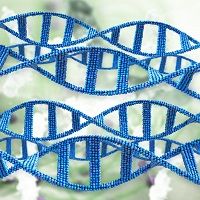Article
Is There a Common Gene Marking Pain, Fatigue, and Depression?
Author(s):
The lack of biomarkers for some life-changing conditions makes diagnoses and treatments more challenging. A new study identified possible biological factors for certain painful diseases.

The lack of biomarkers for some life-changing conditions makes diagnoses and treatments more challenging. A new study identified possible biological factors for certain painful diseases.
Presented at the 34th Annual American Pain Society Scientific Meeting in Palm Springs, CA, researchers from the University of Utah concentrated on pain, fatigue, and depression (DEPR). Lead author Eli Iacob, a postdoctoral fellow in the anesthesiology — operations department of the university, and his colleagues worked to determine a possible relationship between the conditions.
“So I asked myself, are these individual genes related to each other?” Iacob told MD Magazine.
To go about answering such a complex question, the team evaluated 261 subjects with different combinations of issues:
- Fibromyalgia (FMS) = 15 (8 with DEPR)
- Chronic Fatigue Syndrome (CFS) = 33 (11 with DEPR)
- FMS and CFS = 79 (37 with DEPR)
- Healthy Controls — 61
A single medical problem may not be the only cause contributing to symptoms so it is important to look at other possibilities adding to it. The team took blood and analyzed the leukocyte mRNA gene expressions for common identifiers.
“It’s looking at them as a spectrum instead of just as one thing, because they have other problems,” Lacob explained.
The expressions were grouped into categories including purinergic and immune modulators (F1), neuronal growth and immune function (F2), nociception and stress mediators (F3), and energy and mitochondrial function (F4). The data revealed substantial indicators for FMS, CFS, and DEPR.
“Factors F1 and F3 are positively associated with CFS and negatively associated with depression severity (QIDS score), but not with FMS, in multivariate regressions,” the authors wrote.
Since many patients with chronic, painful conditions refrain from exercise, that could be another area to explore. “The next step is to see, if these patterns are real, if they will change over time,” Iacob concluded.





